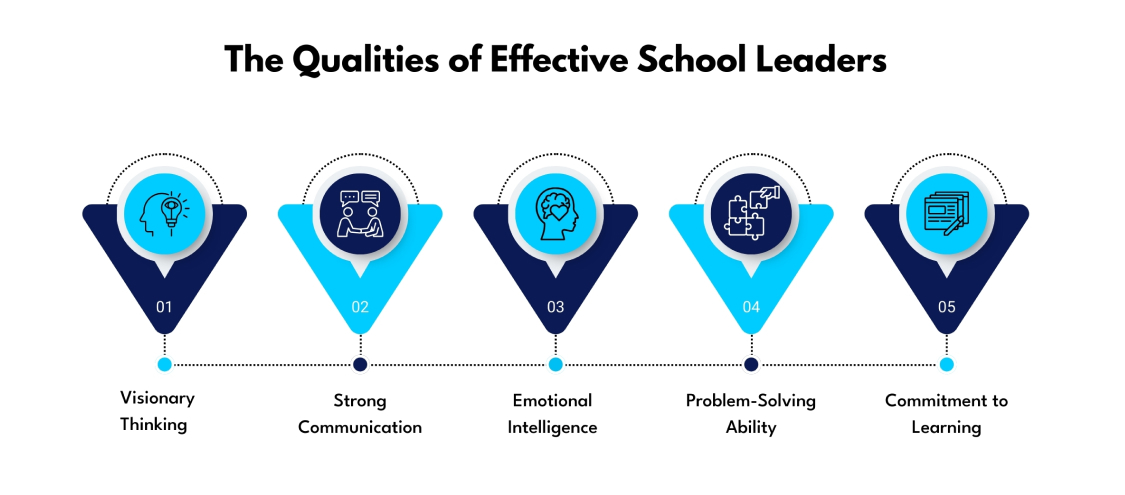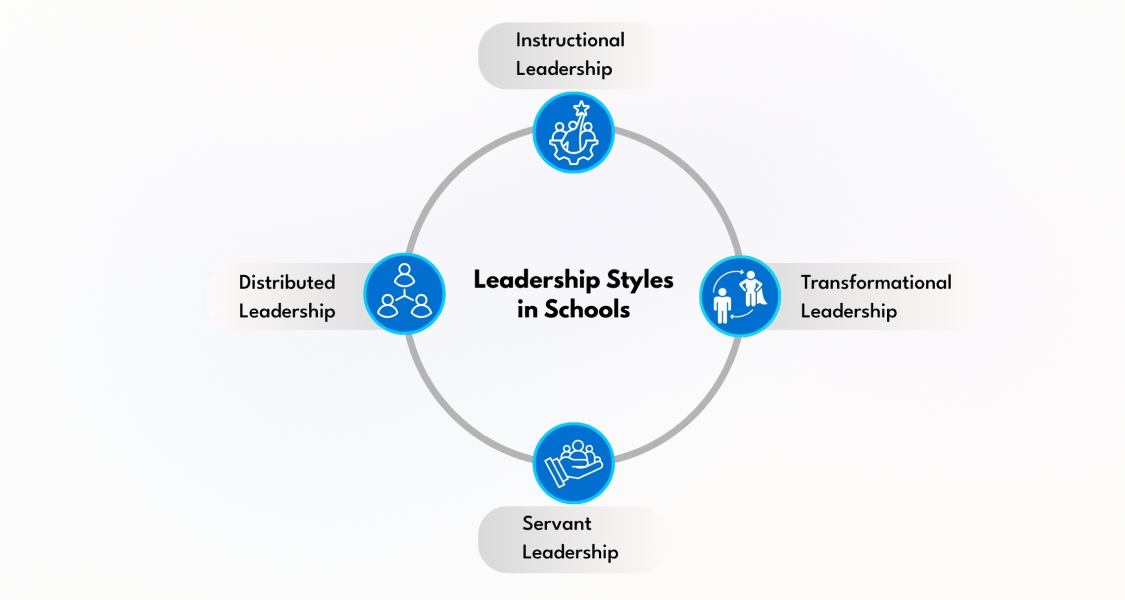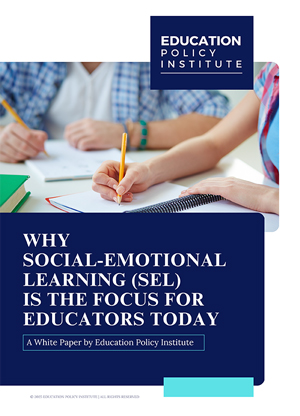Education is not just about curriculum and classrooms—it is about shaping individuals who can thrive in a changing world. At the heart of this mission lies leadership in schools, which serves as a guiding force for innovation, accountability, and student development. Effective school leadership goes beyond managing administrative duties; it involves creating an environment where teachers, students, and communities can progress together. When leadership is exercised with vision and commitment, schools become centers of growth, resilience, and long-term impact.
The Meaning of Leadership in Schools
School leadership is the process of guiding institutions toward achieving academic excellence and overall growth. It involves setting a vision, aligning staff and students to shared goals, and ensuring that resources are used effectively. According to discussions in educational leadership research, leadership is not confined to principals or top administrators; it includes teachers, coordinators, and anyone who influences student outcomes.
Leaders in schools play both strategic and relational roles. Strategically, they plan and implement systems that ensure efficiency. Relationally, they inspire trust, build collaboration, and motivate people to work toward common goals. This dual responsibility makes leadership an essential driver of sustainable change in education.
The Qualities of Effective School Leaders
Schools thrive under leaders who combine personal integrity with professional competence. Research emphasizes that impactful leaders possess adaptability, empathy, and the ability to make informed decisions under pressure. Some of the core qualities include:

- Visionary Thinking – Leaders articulate a clear direction for the school’s future, inspiring others to work toward long-term goals.
- Strong Communication – The ability to actively listen and convey ideas clearly strengthens trust among teachers, students, and parents.
- Emotional Intelligence – Leaders who understand the emotions and challenges of others create supportive environments that encourage progress.
- Problem-Solving Ability – Addressing issues such as student performance gaps or teacher workload requires creativity and quick judgment.
- Commitment to Learning – Great leaders remain learners themselves, staying updated with educational trends and policies.
These qualities empower leaders to manage challenges while promoting a culture of growth and accountability.
Leadership Styles in Schools
The effectiveness of leadership often depends on the style leaders adopt. Different approaches resonate differently with school communities, and no single style works in all contexts. Common leadership styles in schools include:

- Instructional Leadership – Focuses on improving teaching practices and learning outcomes through active involvement in curriculum and assessment.
- Transformational Leadership – Inspires teachers and students to exceed expectations by emphasizing shared vision and personal motivation.
- Distributed Leadership – Encourages shared responsibility, empowering teachers and staff to take ownership of initiatives.
- Servant Leadership – Prioritizes the needs of the school community, ensuring that decisions serve students and staff first.
Effective school leaders often blend these styles depending on the situation, demonstrating flexibility and awareness of what the school needs most.
Building a Positive School Culture
A strong culture is the backbone of every successful institution. School leaders shape this culture through their daily decisions and long-term strategies. When leaders emphasize respect, inclusivity, and mutual trust, the school becomes a place where students feel valued and teachers feel supported.
Culture influences student achievement, teacher satisfaction, and community trust. For instance, a culture that values collaboration encourages teachers to share best practices, while one that emphasizes inclusivity helps students from diverse backgrounds feel welcome. Leaders who are proactive in addressing conflicts, recognizing achievements, and maintaining fairness create environments where growth becomes possible.
Enhancing Teacher Development
Teachers are central to educational success, and their development depends greatly on leadership support. Leaders who prioritize professional development opportunities help teachers remain confident and innovative in their work. Studies highlight that mentorship, peer collaboration, and skill-based workshops are effective tools for teacher growth.
Additionally, leaders play a crucial role in reducing teacher burnout. By balancing workloads, acknowledging contributions, and promoting career growth, leaders keep educators motivated. A supportive leadership approach not only enhances teaching quality but also ensures higher retention rates, ultimately benefiting students.
Improving Student Outcomes Through Leadership
The ultimate test of leadership in schools lies in its impact on students. Effective leadership indirectly impacts student achievement by enhancing teacher quality, shaping school culture, and ensuring the availability of resources.
Leaders influence student outcomes in several ways:
- Establishing high expectations for academic performance.
- Promoting inclusive teaching practices that accommodate diverse learners.
- Creating support systems for students’ social and emotional needs.
- Encouraging extracurricular activities that build confidence and life skills.
When leadership is strong, students are more likely to achieve academically, develop resilience, and build critical interpersonal skills that extend beyond the classroom.
The Role of Innovation in School Leadership
Education is evolving rapidly, and leadership must adapt to new technologies and teaching methods. Innovative leaders embrace change by integrating digital tools, flexible learning spaces, and data-driven approaches. Innovation in leadership is not just about adopting technology—it is about rethinking how education is delivered.
For example, using data analytics helps leaders identify performance trends and design strategies to close learning gaps. Similarly, integrating social-emotional learning programs prepares students for holistic success. Leaders who champion innovation ensure that schools remain relevant and future-ready.
Engaging Families and Communities
Schools do not function in isolation; they are part of larger communities. Strong leadership involves engaging families and local communities as active partners in education. Leaders who encourage parent participation, organize community events, and maintain transparent communication build stronger trust and support networks.
Community engagement enhances resources, provides real-world learning opportunities, and ensures that the school’s goals align with societal needs. Moreover, when parents and community members are involved, students gain a sense of belonging and accountability.
Addressing Challenges in School Leadership
While leadership drives growth, it also faces obstacles. Challenges include limited funding, teacher shortages, rising student needs, and balancing academic and administrative responsibilities. Recent studies highlight that leaders often face high pressure, which can impact decision-making and long-term planning.
To address these challenges, leaders must be resilient, adaptable, and proactive. Seeking creative solutions, such as partnerships, efficient resource management, and collaborative leadership, allows schools to navigate difficulties without compromising quality. Building resilience also involves self-care and peer support, ensuring leaders themselves remain effective under stress.
Preparing Future Leaders in Education
Sustainable progress in schools requires preparing the next generation of leaders. Mentoring aspiring leaders, offering leadership training programs, and creating opportunities for teachers to take on leadership roles help secure the future of school leadership.
By cultivating a pipeline of capable leaders, schools ensure continuity and stability. Preparing future leaders also strengthens the adaptability of educational institutions, making them better equipped to face new challenges and opportunities.
Cultivating Global Perspectives in School Management Through the Global Fellow program at Academik America
The Global Fellow Program in School Leadership and Management, offered by Academik America through its EPI initiative, is designed for educators and school leaders who wish to strengthen their leadership, management, and innovation skills. The program emphasizes global best practices, effective school governance, academic excellence, and strategies for driving institutional growth. Participants engage in interactive sessions, case studies, and networking opportunities with peers and experts. It aims to equip leaders with the tools to address contemporary challenges in education while preparing schools for sustainable growth and transformation.
Key Features
- Global Scope with Selective Access: Invitation-based admission ensures that participants are highly motivated and positioned within educational institutions that value leadership development. A limited number of open applications may also be accepted from eligible candidates.
- Research-Driven Curriculum: The program blends theoretical insights and actionable strategies, drawing on cutting-edge studies to inform leadership approaches designed to contemporary K-12 challenges.
- Leadership Enrichment in Practice: Participants gain exposure to effective leadership behaviors that can revitalize academic engagement and institutional excellence, with a focus on management techniques that align with the evolving demands of school leadership.
- Flexibility and Adaptability: Although part of a structured executive learning series, the program’s details—including content, schedule, and format—may change, allowing it to remain responsive to emerging educational needs and global trends.
Conclusion
Leadership in schools is far more than administrative oversight; it is a transformative force that shapes culture, supports teachers, improves student outcomes, and adapts education to future demands. Leaders who combine vision, empathy, and innovation guide schools toward continuous improvement and meaningful change. By building strong cultures, embracing innovation, engaging communities, and preparing future leaders, schools can become powerful agents of growth for both individuals and society.
Latest
Trends blogs
- Mid-Career Education in a Changing Labor Market
- The Next Phase of STEM Education: The Role of Artificial Intelligence in Classroom Curricula
- Education Technology in 2026: Trends Driving the Next Wave of Learning
- Aligning Education with Employability: The Rise of Skill-Centered Learning
Focus blogs
- Research-Driven Education: Strengthening Strategies, Policies, and Classroom Practice
- Professional Certifications for Career Growth: What Students and Young Professionals Need to Know
- Building a High-Impact Center of Excellence: What You Need to Know
- Beyond Graduation: The Importance of Lifelong Learning in Higher Education





